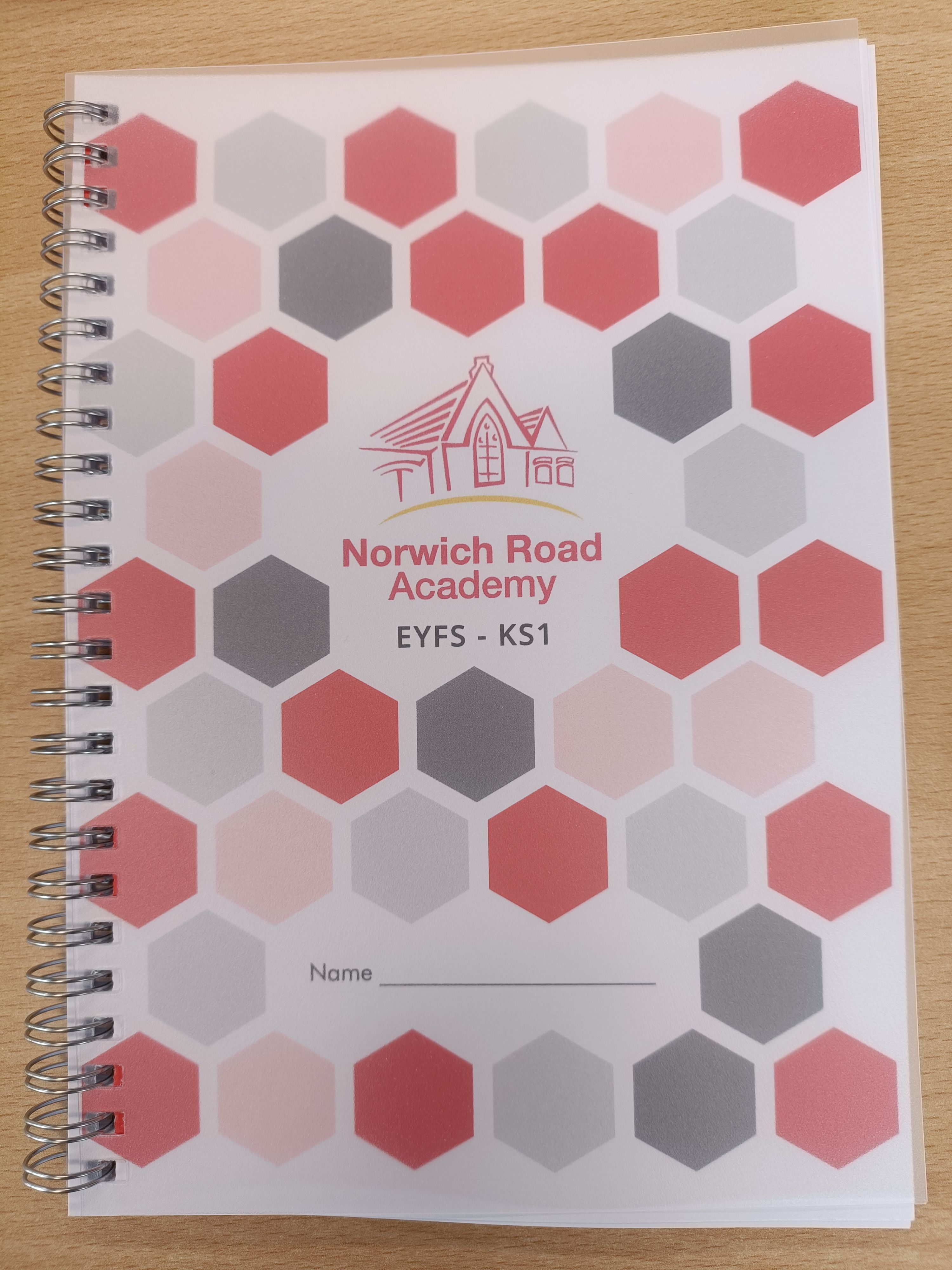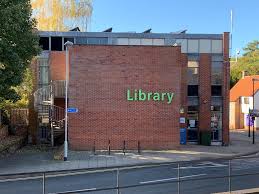We know that learning happens beyond the classroom and beyond school hours. We want our children to build a desire to learn in their everyday life, and we appreciate the role parents have in supporting their child's development.
Every child at Norwich Road Academy will be issued with a bespoke made Reading and Spelling log, a home learning book, reading books and a smart plastic folder to keep all your documents safe.

Children will have home learning activities sent home weekly, depending on their age.
Topic Home Learning
All children will be set a half-term topic project. This can be worked on at home throughout the half-term. Topic learning should be brought into school on the last week of each half-term. There will be opportunities to share this home learning with their class and year groups.
Year 3 children proudly showing off their home learning on The Tudors.
Thetford Library
Norwich Road Academy works closely with the local library in Thetford. The library knows our curriculum and stocks additional books to support our children's learning. If your child is not a member of the local library, you can visit the library at:
Raymond St, Thetford IP24 2EA. Or telephone them on 01842 752048.

Supporting your child with home learning
Parents can support their children's learning in many ways, including:
-Asking children about their school day and new learning
-Reading together daily
-Encouraging your child to complete their home learning
-Visiting the local library or school library after school to borrow a range of books.
Further ideas to support your child:
Nursery and Reception:
- Read a story and talk about the characters
- Practise phonics as often as you can
- Practise counting
- Talking about shapes and finding some in the home
- Letter and number formation
- Interact and play games
Year 1:
- Find objects around your home and use your phonics to label them
- Read a book everyday and write a sentence about what happened in the story, remembering to include capital letter and full stops
- Collect 10 pairs of socks, use them to practise counting in 2s
- Get a pile of your favourite toys or Lego, group them into tens an ones and count how many you have
- Get some seeds and plant them, record how high your plant grows each day
Year 2:
- Read everyday
- Write book reviews for the books you finish
- Keep a diary
- Practise 2, 5 and 10 times tables
- Complete calculations using all four operations (+, -, x and ÷)
- Measure objects around your home and record the lengths
- Go on a 3D shape hunt, write the names of all the shapes you find, then make a table and record the number of faces, edges and vertices for each object
- Collect some coins from your money box, list the coins you have and find the total amount. Try to make the same amount using different coins.
Year 3:
- Recall 3, 4 and 8 multiplications as well as their division facts
- Use everyday objects to write fractions
- Compare, order, add and subtract fractions with the same denominators
- Measure objects around the house using a ruler and record in mm and cm
- Baking is a perfect way to measure mass and capacity
- Tell and write the time in 24 hour and analogue – do this at certain times of the day. Ask your children to help create a timetable
- Draw 2D shapes and use a ruler to measure their sides
- Add and subtract money using both pounds and pence
- Ensure your child reads every day. Ask your child to give you a recount of what they have read.
- Ask your children to keep a diary and include:
– Conjunctions (if, since, at when, although, because), adverbs and prepositions (during, before, after, behind, in front of, between) to make sentences longer
– Speech in sentences
Year 4:
- Read every day. Ask questions about what might happen next
- Write a book review
- Practise timetables
- Practise spellings
- Encourage addition and subtraction using money. How much change?
- Use everyday objects to practise fractions – how much pizza have you eaten? What fraction of the socks are blue? What fraction of the cars you can see are red?
- Make a plan to decorate a room and measure the perimeter
- Write an explanation text about your favourite hobby
Year 5:
- Read lots of different types of texts and discuss them
- Estimate the area and perimeter of the rooms in your house
- Write a story including direct speech and parenthesis
- Create different fractions using everyday objects, then record and compare them
- Practise Y5/6 spelling words
- Recap specific grammatical terminology
- Practise multiplying 4 digit numbers by 1 or 2 digit numbers
- Practise dividing 4 digit numbers by a 1 digit numbers
- Read, write, order and compare decimals, for example money
Year 6:
- Recap specific grammatical terminology
- Practise spellings from the Y5/6 word list and put them in sentences
- Read lots of different types of texts and discuss them
- Practise calculating using all 4 written methods of calculation (addition, subtraction, multiplication and division)
- Explore equivalences between fractions, decimals and percentages
- Practise calculations using fractions and decimals
- Find fractions and percentages of amounts
Additional learning resources
Our curriculum page on the website provides you with links to all subjects. Each subject has links to great learning websites to allow your child to continue their learning within specific subjects. This is a great resource to support your child's learning.
BBC Learning
http://www.bbc.co.uk/learning/coursesearch/
This site is old and no longer updated and yet there’s so much still available, from language learning to BBC Bitesize for revision. No TV licence required except for content on BBC iPlayer.
Oxford Owl for Home
https://www.oxfordowl.co.uk/for-home/
Lots of free resources for Primary age
Blockly
https://blockly.games
Learn computer programming skills – fun and free.
Scratch
https://scratch.mit.edu/explore/projects/games/
Creative computer programming
Ted Ed
https://ed.ted.com
All sorts of engaging educational videos
National Geographic Kids
https://www.natgeokids.com/uk/
Activities and quizzes for younger kids.
Duolingo
https://www.duolingo.com
Learn languages for free. Web or app.
Mystery Science
https://mysteryscience.com
Free science lessons
The Kids Should See This
https://thekidshouldseethis.com
Wide range of cool educational videos
Cbeebies Radio
https://www.bbc.co.uk/cbeebies/radio
Listening activities for the younger ones.
The Woodland Trust
https://treetoolsforschools.org.uk/categorymenu/?cat=activities
Red Ted Art
https://www.redtedart.com
Easy arts and crafts for little ones
DK Find Out
https://www.dkfindout.com/uk/…
Activities and quizzes
Twinkl
https://www.twinkl.co.uk
This is more for printouts, and usually at a fee, but they are offering a month of free access to parents in the event of school closures.
Times table rockstars
ttrockstars.com/
